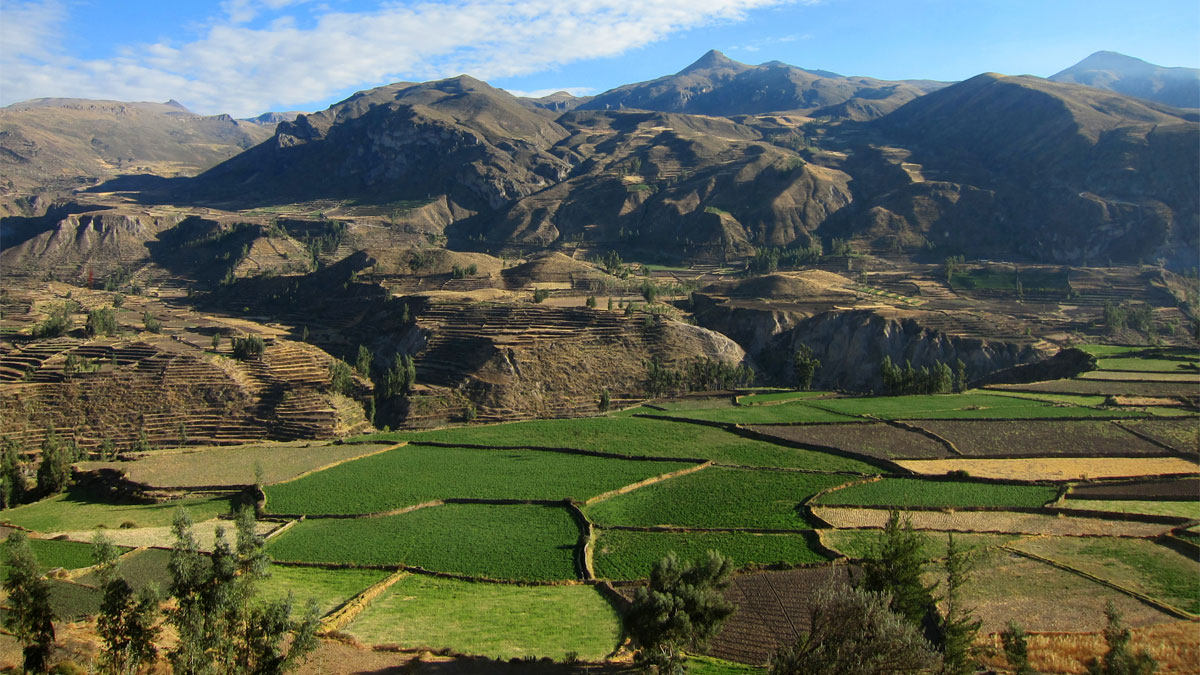Can the ability to adapt to climate change be improved based on knowledge about our ancestors?
By integrating archaeological, environmental and social science, Professor Nicholas Branch is trying to answer this question through his work with rural farming communities in the Peruvian Andes (regions of Ancash, Lima-Junín and Ayacucho-Apurimac).
Gathering scientific data from lake and peat sequences allows us to see signals of environmental change and human activity; combined with archaeological evidence, we can map previous landscape transformation and abandonment and investigate the potential relationship with past changes in temperature and precipitation.
Water management is an important part of sustainable farming and food production, which affects the economic resilience of those who need to produce goods to survive.
If water resources drop, so does the risk of acute poverty, which can then lead to socio-political issues; such as migration and even collapse.
“These rural communities are practicing traditional agricultural and pastoral farming utilising methods and infrastructure that have remained largely unchanged for several millennia. However, their efforts to adapt to climate change are not being properly supported.
"They are facing numerous challenges including long-term water shortages, soil aridification and crop diseases, which is one of the reasons for greater migration to the cities and to mining areas where they can earn a better living.
"We would like to establish whether climate change had an impact on past farming communities, and their agricultural and water management systems, and if so, whether this led to adaptation practices that have a relevance today.”
Studying climate variability
Nick is focusing on the last 1,500 years, a period of significant climate variability in the Peruvian Andes. During this time, major prehispanic civilisations such as the Wari, Chanca and Inca transformed the landscape with terraced agriculture and highly sophisticated water management systems.
It remains unclear whether climate change, especially known periods of higher rainfall and drought led to significant changes in the agricultural system or even collapse.
This project has the possibility of providing solutions to big problems faced within Peruvian farming communities. The impact the results could have has given Nick ambitious goals for the future.
“The most ambitious goal of our impact plan, in the long term, is to reduce poverty by enhancing sustainable food production in rural areas. This would be very important in terms of reducing migration from rural areas, and improving the quality of life of people living with climate change.
"As part of our small contribution, we are working with government institutions and non-governmental organisations in Peru to support rural communities, helping them think about how water resources, soils, agricultural terraces and crops are traditionally managed, and learning lessons from the past is important part of that debate.”
Teaching integration
As part of his teaching, Nicholas includes case studies from his work in South America within Geography and Environmental Science modules. His research is woven into everything he teaches, and he regularly has students who work on his South American research material in their dissertations.
Last year, research student Daniella Giannitto went to Peru with Nicholas to support his research but also to collect data for her dissertation project on reconstructing environmental change in the Cordillera Blanca, central Peruvian Andes.
Since completing the fieldwork, Daniella has been analysing fossilised pollen grains in the laboratory extracted from lake sediment samples. The results are providing valuable new information on land-use history and environmental change.
Daniella found this to be a highlight of her University experience;
“I would say that having the opportunity to go to Peru for research was the highlight of my University experience. To experience how different other people's lives can be and learn about their culture and history was incredible, and I already can't wait to go back."
